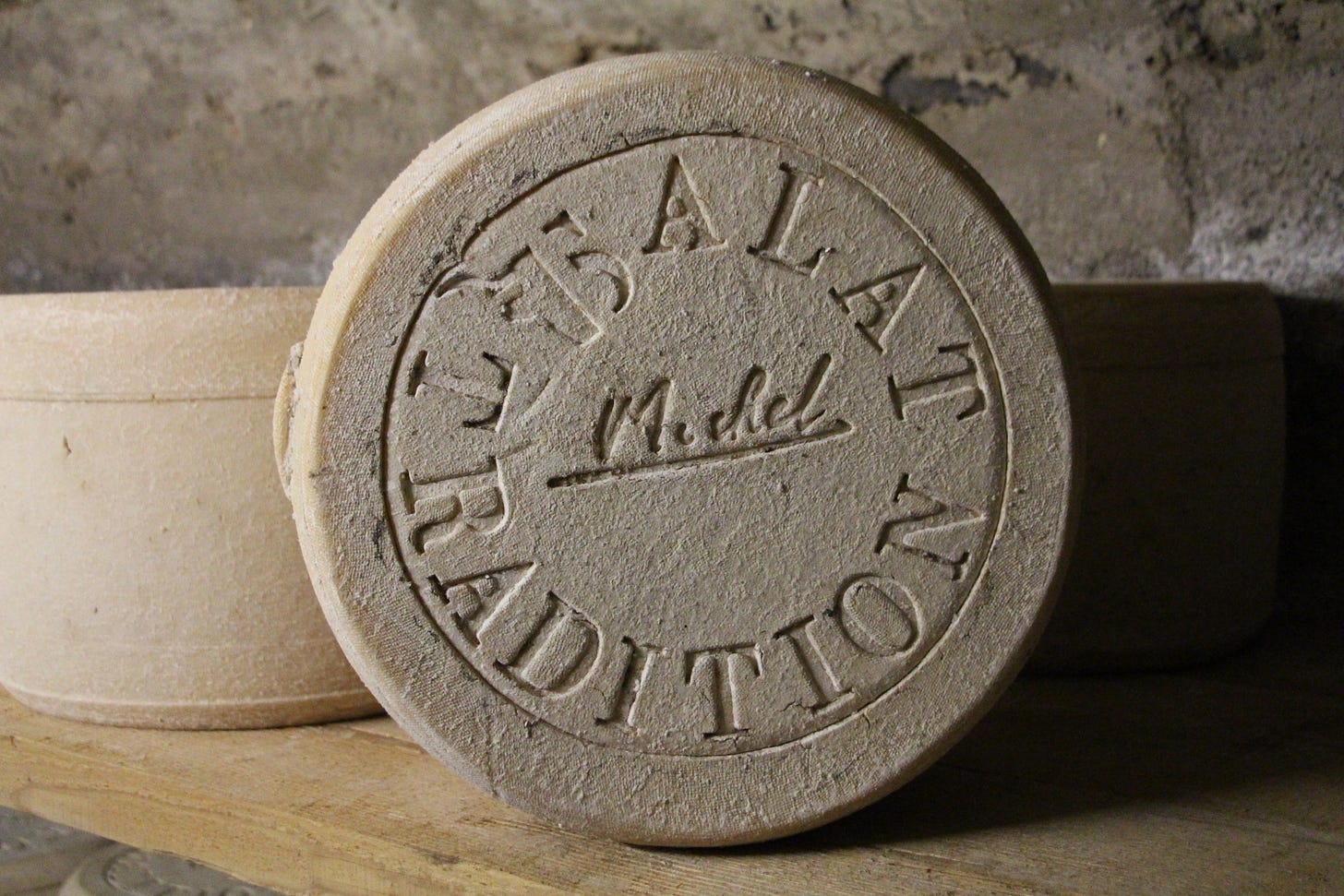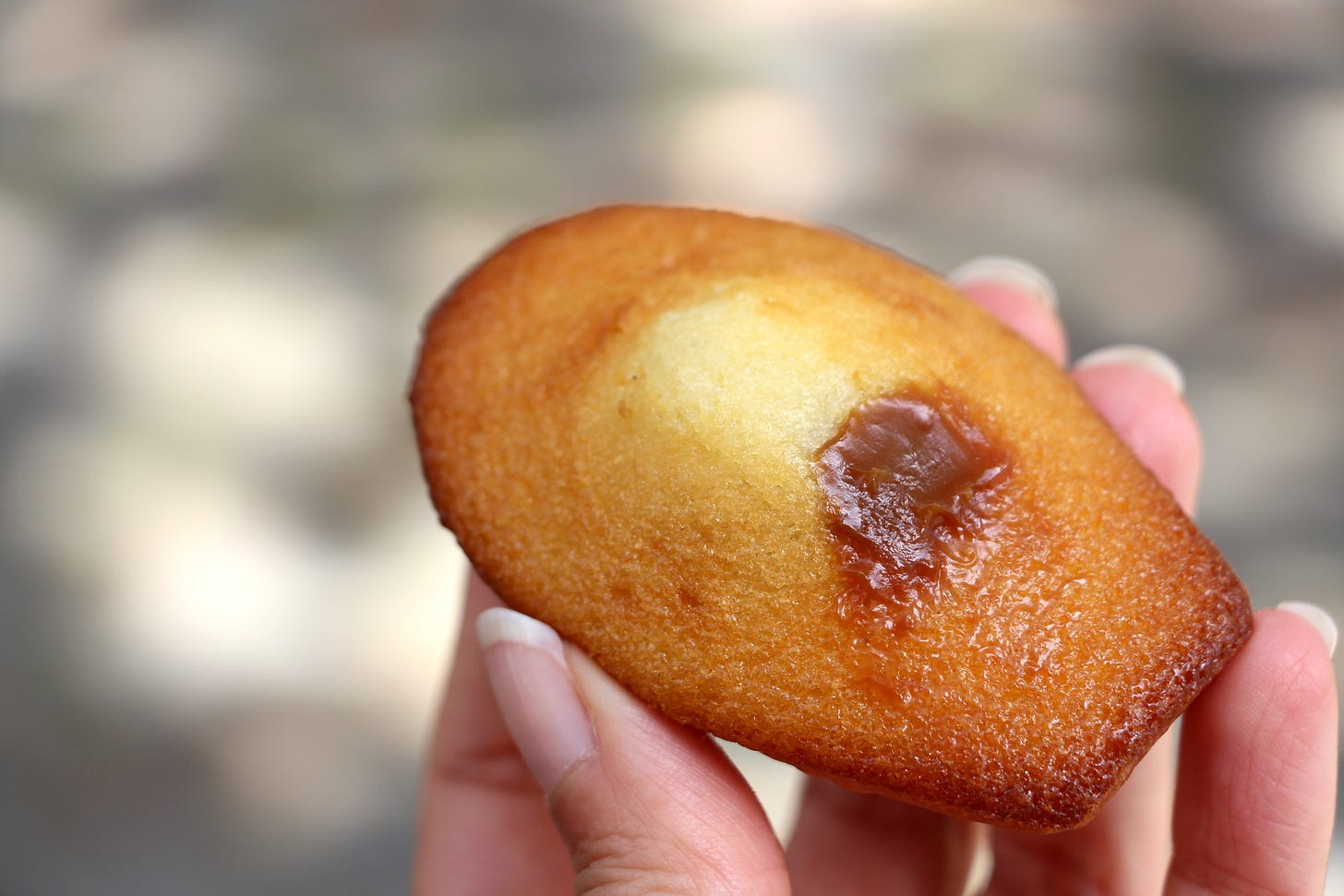Emily in France 🇫🇷 Bonne Année!

Happy New Year!
Did you know that in France, you get a whole month to wish people Happy New Year?
It's true! The first time you see anyone in 2022, regardless of whether it's the 1st or the 31st of the month, it's likely that they'll be wishing you a Bonne Année.
And why not?
The 1st is, after all, an arbitrary day upon which to begin a new year, which is perhaps why it's up for much debate: The Jewish New Year is in late September; the Lunar New Year signals the arrival of spring. The French Republican calendar year began on the first of Vendémiaire, the month named for the grape harvester, and corresponded with the autumn equinox.
(For an even more in-depth look at the arbitrariness of dates – specifically weeks – this New Yorker story is a real eye-opener).
But I digress. My point is... If we're going to start the year in midwinter instead of in September, when the New Year really feels like it begins (at least according to the Jewish community, the French Republic, and this unreformed former academic), why not give ourselves a whole month to ease into it?
This is no more apt approach, to my mind, than with regards that tried and true (but often maligned) New Year's tradition of resolutions. It seems like setting oneself up for failure to commit to do something new and difficult beginning the morning after an evening of Champagne toasts. (Studies have shown that 80 percent of New Year's resolutions fail.)
Of course, this New Year's Eve was a bit different for many of us, seeking to steer clear of possible Omicron infection. (I, for one, was happily in bed at 9:30). But I still didn't set a resolution. In fact, I abandoned more traditional resolutions years ago in favor of focusing on a word that would govern the year ahead. A word, unlike a resolution, doesn't have a pass/fail evaluation baked into it. There's no way for me to fail a word.
(Can you tell I was raised in America?)
This year's word is Focus.
Those who know me well may laugh, as focus doesn't really seem to be something I lack. A good friend told me recently that on a writing retreat, she watched with incredulity as I persisted in writing at the kitchen table well through lunch, even while others sat at the table, eating and talking around me.
Yes, I can commit myself to a task with almost disturbing single-mindedness. The issue arises when it comes to choosing one.
I love my job; I have pretty much always loved it, from the moment I quit my full-time employ in favor of freelancing. The issue is in loving it too much, in saying yes to too many things and, for want of hours in the day or days in the week (see above for an imperfect solution...) done a half-hearted job at all of them.
This year, instead, I want to do less: to commit myself to excelling at fewer things rather than doing poorly a great swath of them. Hope it sticks!
How about you, dear reader? What are your hopes, dreams, and resolutions for 2022?

Cheese of the Week
Cantal has long been the ancestral cheese of the eponymous region of central France defined by the grassy, former volcanic slopes and valleys feeding the local Salers cattle. These cows were, traditionally, the source of the milk for this pressed cheese with an almost cheddary texture and vegetal, nutty notes. But due to a series of unfortunate events (some of which I detail here), the quality of Cantal has slipped in recent years, so much so that today, a variety of similar cheeses bearing different names – Cantal, Salers, Salers Tradition – now exist in the region. My favorite is made by just one producer, Charlotte Salat, who was forced out of the AOP but has since forged out on her own to make an iteration of this cheese rooted in tradition. It boasts a deep, complex flavor and a buttery aroma for a true evocation of her ancestral terroir.
To discover more of my favorite cheeses, be sure to follow me on Instagram @emily_in_france.

What I'm Eating
Much in the way that Pierre Hermé has established himself as the macaron king of Paris, so has Gilles Marchal – a native of eastern French Lorraine and owner of an eponymous pastry shop in picturesque Montmarte – become the go-to for madeleines. He has over 70 different flavors on offer, albeit never more than about a dozen at once. (For more about the resurgence of the little traveling cake in Paris, check out my story in Food52).
Discover more of my foodie finds via Instagram @emily_in_france.
What I'm Writing
1. Paris may seem synonymous with the bistro, but the reality is that this time-honored tradition has been falling out of fashion for a while now. Are Paris' bistros museums of their former selves? Are any iterations of this once-beloved style of restaurant still worth the trek? I explore these questions and more for Life & Thyme.
2. D.C. natives noticed an alarming dearth of blue crabs on menus this year, motivated by a complex laundry list of factors including climate change, immigration laws, and the pandemic. As for what next year's harvest will look like... it's complicated. For InsideHook.
3. If you're tentatively beginning to invite people back into your home this year, you may be out of practice when it comes to setting the table. I'm breaking down the table setting rules you should and shouldn't follow for Mashed.

What I'm Saying
1. The French are famous for their derision, correcting newcomers on their language, their way of dressing, and even the volume at which they speak. But they aren't being pedantic to be cruel – it's all linked to the deeply held value of being correct, as I explore with Janet Hulstrand, author of Demystifying the French: How to Love Them and Make Them Love You on Navigating the French.
2. On Chez Toi, Caroline Conner and I pair your home-cooked recipes with the perfect wine and most complementary cheese. This week's recipe comes from Joanna Ferrell: a comforting pasta e fagioli recipe she inherited from her mom. Both Caroline and I took our pairing inspiration from Italy, albeit with choices even Italophiles may not yet have encountered.
What I'm Reading
1. This fun romp through one man's attachment to the Feast of the Seven Fishes as a way of undoing his ancestors' assimilation, as told through the eyes of his ex-wife, in the New Yorker.
2. The history of why it's illegal to use milk crates for purposes other than the transport of milk.
3. When I first started publishing things that were actually being read by people who had never met me, I received quite a few clap-backs (including one from someone so perturbed by my perspective he penned an entire mean blog post in response). Comments get nasty, and while I'm lucky to have some fantastic friends who put my worries to rest (one by helping me to put myself in the shoes of people who have nothing better to do than be vitriolic online; the other by commenting only positive things via pseudonym), part of me wishes I had the balls to respond to commenters the way the late, great Joan Didion did: succinctly and dismissively. In the Cut.
A bientôt !



